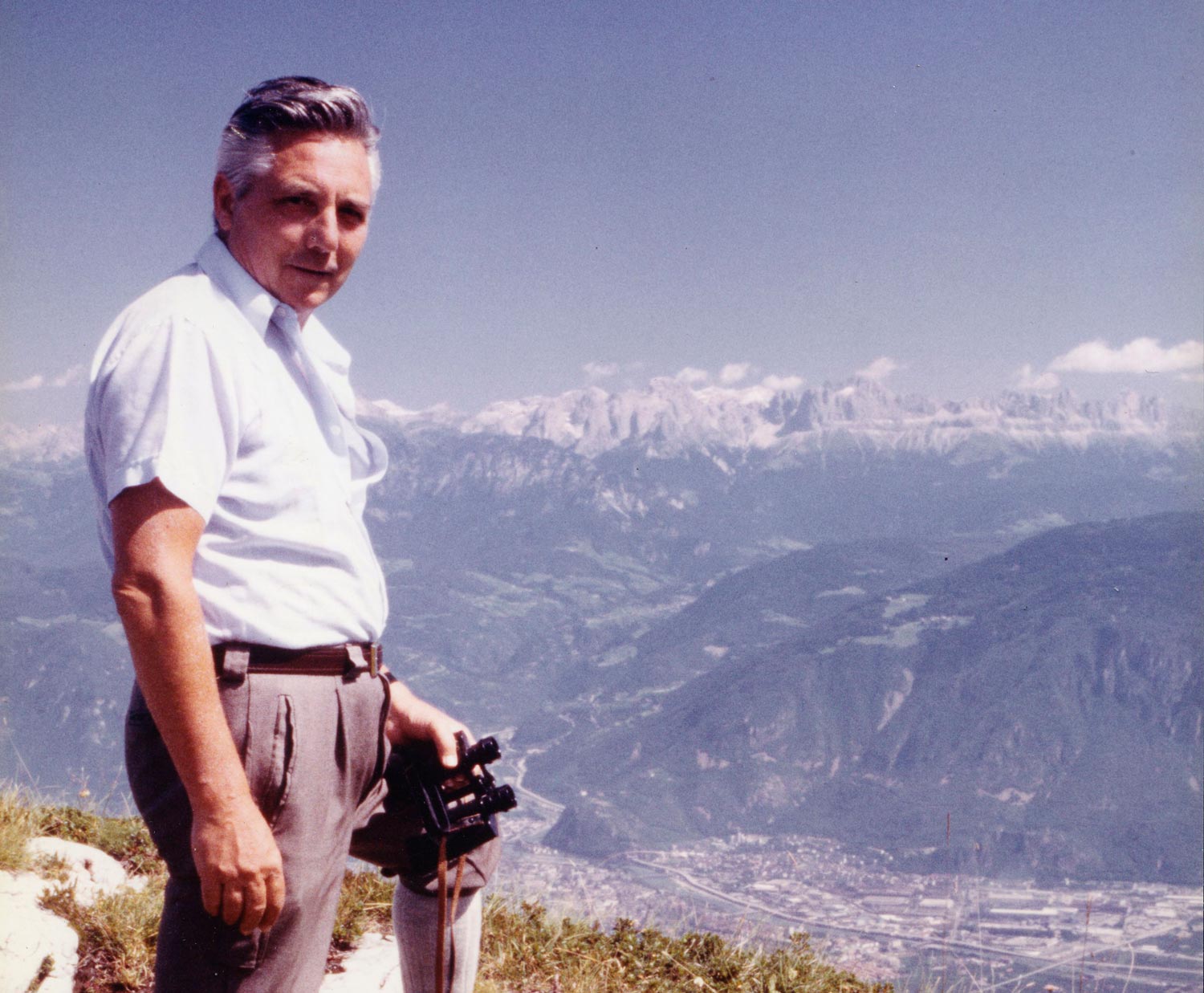Alcide Berloffa
(1922 – 2011)
A new political beginning
Alcide Berloffa, together with Silvius Magnago, is seen as one of the most important figures in the history of South Tyrolean autonomy. With his tact and ability to compromise, during his long life he was central to negotiations between Rome, Vienna and Bozen/Bolzano. In 2001 he was awarded the Bishop Dr Joseph Gargitter Prize for his contribution to coexistence in South Tyrol. The Municipality of Bozen/Bolzano has dedicated an installation to him in the station park that bears his name.
“We had to invent a future
that no one knew”.
Alcide Berloffa, 2002

“There was no school for living together. We had to figure it out for ourselves.”
Alcide Berloffa, 2002
Childhood
and family
Born in 1922, Berloffa was the eldest of five children in a family that moved from Trentino to Bolzano in 1928. His father worked on the construction of the electrical power plant in Cardano. Growing up in the Rencio district, he became familiar with German-speaking South Tyrol.

Mediation and reconciliation
Alcide Berloffa, together with Silvius Magnago, is considered one of the most important figures in the history of South Tyrolean autonomy. Known for his tact and compromise, during his long life he was a central to negotiations between Rome, Vienna and Bolzano. In 2001, he was given the Bishop Dr Joseph Gargitter Award for his contribution to coexistence in South Tyrol.

Between
the Fronts
The 1939, Hitler-Mussolini resettlement agreement, the “Option”, along with Italy’s entry into the war in 1940, ended Berloffa’s youth. Even before graduating from the school of geometry, he – like Magnago – was appointed to the commission that surveyed the property of emigrating South Tyroleans. Some friends joined the Wehrmacht, others the Italian army and Berloffa himself was also called up. After the German invasion in 1943 he went into hiding.

Fine-tuning Autonomy

